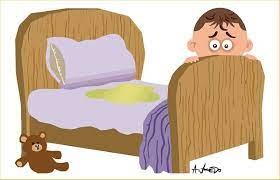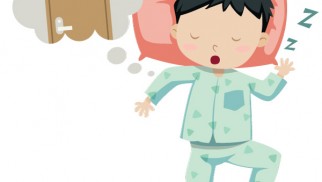Understanding Night Enuresis in Children


What is Night Enuresis?
Have you ever wondered why some children continue to wet the bed even after they have been toilet-trained?
Night enuresis, commonly known as bedwetting, is an involuntary urination that occurs during sleep in children aged five and older. While it can be frustrating for both parents and children, it is a common condition that affects millions worldwide.
- It is categorized into primary enuresis, where the child has never stayed dry overnight for an extended period, and secondary enuresis, where bedwetting resumes after a dry period of at least six months.
- This condition is more common in boys than girls.
- It usually resolves over time, but some children may need intervention.
Causes of Night Enuresis
What leads to night enuresis in children? Several factors contribute to this condition.
- Delayed bladder maturation – The bladder may not have developed enough to hold urine overnight.
- Hormonal imbalance – Some children produce low levels of antidiuretic hormone (ADH), which reduces urine production at night.
- Genetics – If one or both parents experienced night enuresis, their child has a higher chance of developing it.
- Deep sleep patterns – Some children sleep so deeply that they do not wake up when their bladder is full.
- Psychological stress – Anxiety, stress, or major life changes can trigger bedwetting in children who previously stayed dry.
Effects of Night Enuresis on Children
How does bedwetting impact a child’s life? Night enuresis can have emotional, social, and psychological effects.
- Low self-esteem – Children may feel embarrassed and ashamed, leading to a lack of confidence.
- Social withdrawal – Many children avoid sleepovers or overnight camps for fear of wetting the bed.
- Parental frustration – Parents may experience stress due to laundry, interrupted sleep, and concern for their child’s well-being.
- Disturbed sleep patterns – Frequent bedwetting may interfere with a child’s ability to get restful sleep.
Diagnosis and When to Seek Help
At what point should parents seek medical advice for night enuresis?
- If the child is older than seven years and still wetting the bed frequently.
- If bedwetting resumes after six months or more of being dry. I
- f there are signs of daytime incontinence, pain, or unusual thirst, which may indicate an underlying medical condition.
- If bedwetting causes emotional distress or interferes with daily life.
A doctor may perform urinalysis, physical examinations, and lifestyle assessments to determine potential causes.
Solutions and Treatments for Night Enuresis
What are the available treatment options for night enuresis?
- Behavioral techniques – Encouraging regular bathroom visits before bedtime and limiting fluids in the evening.
- Bedwetting alarms – These devices wake children when they begin to urinate, helping them develop bladder control.
- Bladder training – Exercises that strengthen the bladder to hold urine longer.
- Medical intervention – In some cases, medication may be necessary for persistent bedwetting.
Tofranil (Imipramine) as a Treatment Option
One medication used to treat night enuresis is Tofranil (Imipramine), a tricyclic antidepressant that helps reduce bedwetting episodes.
- It works by relaxing the bladder and increasing the ability to hold urine. This medication is typically used when other methods have failed.
- It must be taken under medical supervision due to potential side effects.
- It is often used for short-term treatment alongside behavioral therapies.
While Tofranil can be effective, it is essential to discuss its risks and benefits with a healthcare professional.
Conclusion
Night enuresis in children is a common yet distressing condition that can impact their confidence and social life. While most children outgrow bedwetting naturally, understanding its causes and available treatments can help manage the condition. Parents should offer support, patience, and, if necessary, seek medical guidance to find the best approach for their child. Whether through behavioral techniques, alarms, or medical treatments like Tofranil, various solutions can help children overcome night enuresis and regain their confidence.
Article Post: Editorial Team of RXShop.md
(Updated at Mar 15 / 2025)

